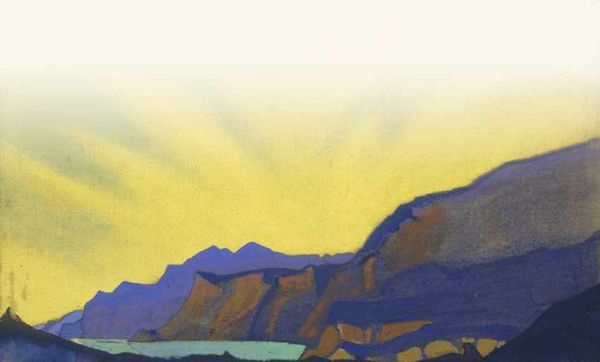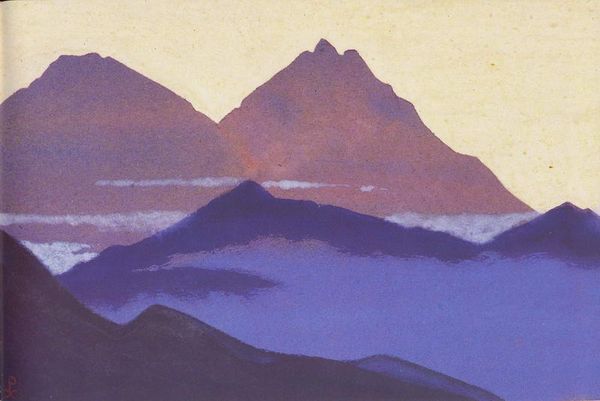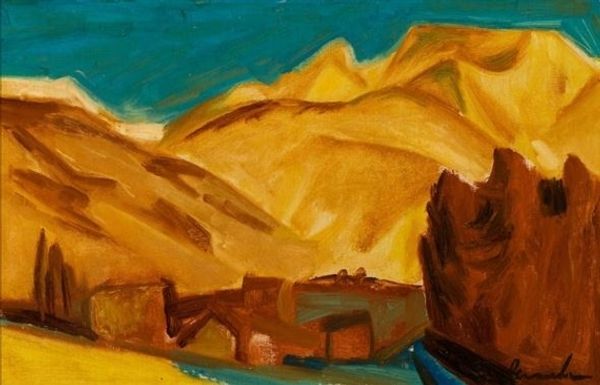
tempera, painting, oil-paint
#
sky
#
tempera
#
painting
#
oil-paint
#
landscape
#
romanticism
#
mountain
#
modernism
Copyright: Public domain
Editor: Looking at Nicholas Roerich's "Sunset over Malana", possibly rendered in oil and tempera, the vibrant yellows of the sky immediately strike me, contrasting so boldly with the almost icy blue mountains. How does this visual contrast play into our understanding of the painting, particularly in its socio-historical context? Curator: It's a potent juxtaposition, isn't it? Roerich was deeply interested in the spiritual dimensions of landscape and in this period of Modernism he creates work that is infused with cultural dialogue between the East and the West. Consider Malana itself: this isolated village has its own complex socio-political systems. How might Roerich's interpretation engage with or even potentially romanticize that? Is this scene reflecting an actual sunset or an idealized vision, and how did Romanticism play a part of how Westerners thought about Asian cultures and landscapes? Editor: I see what you mean. Perhaps the simplified forms and heightened colors aren't just aesthetic choices but a way of making the place and the experience more "exotic" and easily digestible for a Western audience? Curator: Precisely. The artwork functions then as not only an aesthetic object but a carrier of socio-political meanings. How the landscape is perceived becomes a cultural product that can perpetuate specific historical and contemporary values. Consider the role of museums as well. How have institutions contributed to our understanding of Roerich and works such as this? Editor: That makes me consider how the painting's presentation – perhaps even its very existence in a museum – shapes its reception. It feels like we're not just seeing a sunset but a curated idea of one, and I also think the tag ‘Romanticism’ has affected how I initially saw the artwork too. Curator: Yes, our own contemporary experience is itself impacted by this social, cultural, and institutional framework. That being said, it is important to keep questioning its placement, as contexts always continue to shift over time!
Comments
No comments
Be the first to comment and join the conversation on the ultimate creative platform.













